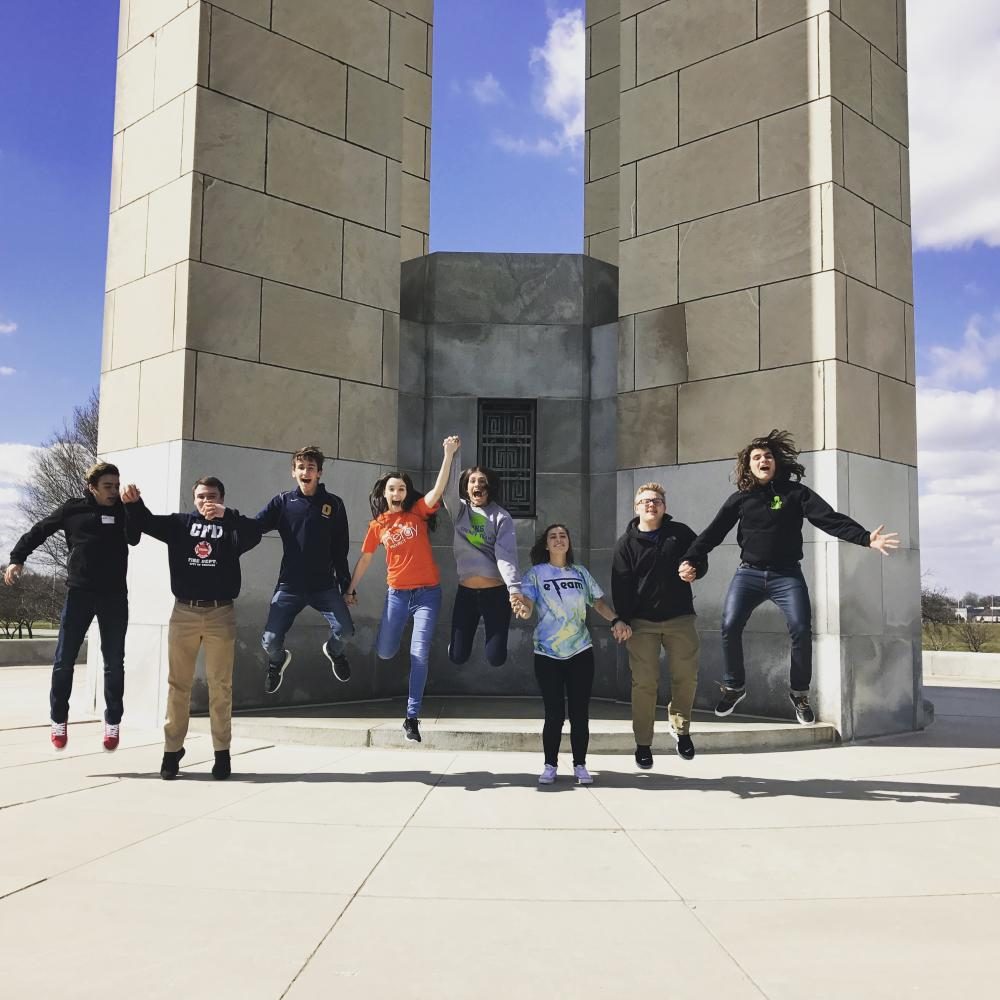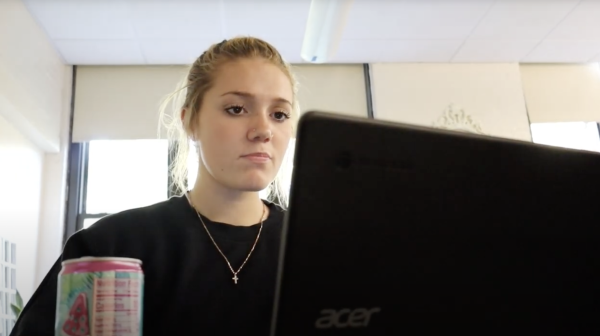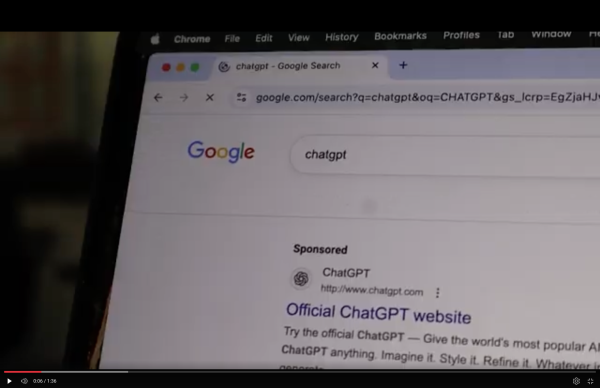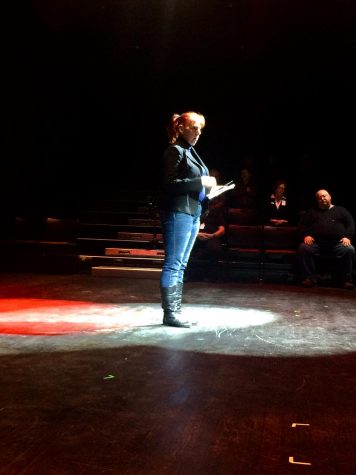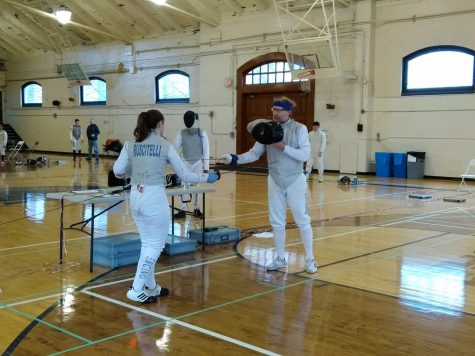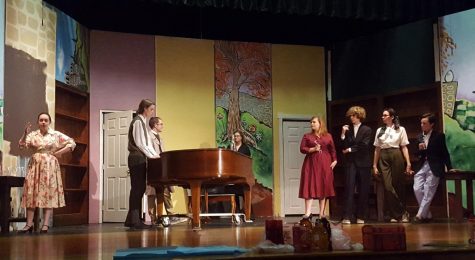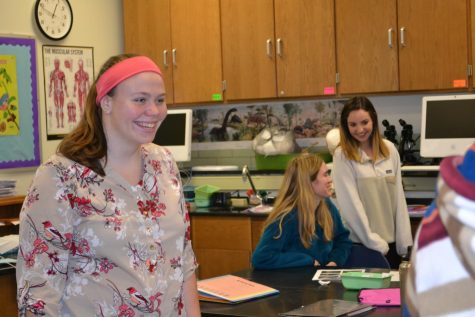Energy team educates the community
“Our message is how to conserve energy and use clean energy so we can keep using it for the future,” Calista Miller, Energy Team member said.
Whether people make it, use it, or waste it, energy is something that follows all individuals in life. In the United States, Americans consume over 6,917.43 kilograms of oil equivalent per capita. Here at Oakwood, the Energy Team works to reduce these rates, and make our world a cleaner, more efficient place.
The Energy Team meets in, science teacher Heidi Steinbrink’s room about one or two Tuesdays per month.
“Energy team is about working with people and educating people about energy and the different types of energy and how to use it and how to conserve it,” Miller said.
One of the Energy Team’s largest projects is the Energy Bike.
“Every year we have the energy bike and basically we use it to teach other people about energy. Someone will ride the bike and it will power different types of lightbulbs on our powerboard,” Miller said.
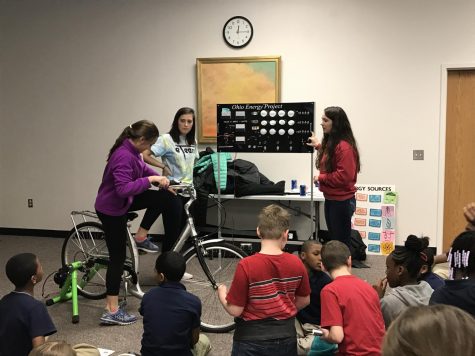
The Energy Team also participates in field trips. They go to COSI, a hands-on science center located in downtown Columbus, and if they make it, to the state competition or the national competition.
“My favorite memory from Energy team would be last year when we went to Cosi and we all got to hang out and look at all of the different exhibits and have a hands on experience,” Miller said.
The Energy Team also has a more competitive aspect to it as well. Different Energy Teams from across the country travel to Washington D.C. to attend the national competition. For the past seven years, the team won Ohio’s state competition and became national finalists.
“Energy Team is a group that participates under the umbrella of the Ohio Energy Project as well as the National Energy Education Development organization,” Steinbrink said.
In Ohio, the Energy Team will move on to this year’s State Competition at COSI on May 16.
“The goal is to empower students to teach their peers and community about energy education and energy efficiency and to create a positive impact on their community and environment,” Steinbrink said.
By: Jack Degenhart


